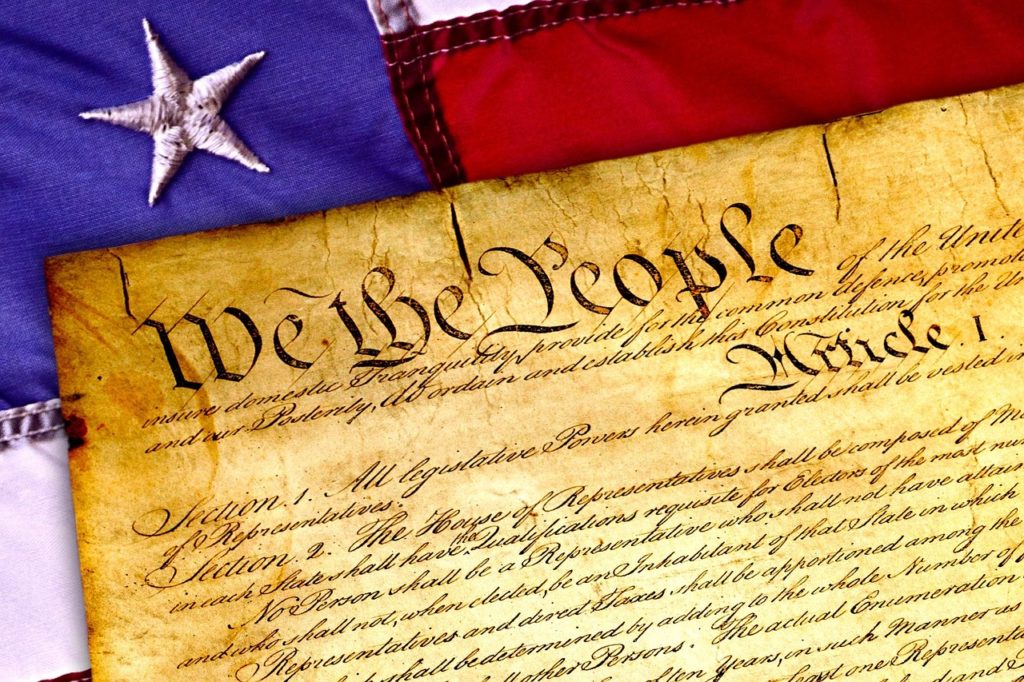The Court of Appeals for the Armed Forces (CAAF) recently affirmed the conviction in United States v. Perkins despite a finding by the lower court that the search of Sergeant Perkins’ home was conducted without probable cause.
In 2015, a civilian woman contacted the Naval Criminal Investigative Service (NCIS) onboard Marine Corps Air Station Yuma to report that Sergeant Perkins had been blackmailing her with pictures and videos of her engaging in sexual activities with Sgt Perkins. She said that she had bought him several items and given him her property in order to prevent the release of these pictures and videos. The woman also told NCIS that she did not know if Sgt Perkins actually had pictures and videos of her, but that he had used his cell phone once while they were engaged in sexual activity. She also told them that Sgt Perkins owned, and kept at his home, several electronic items capable of storing digital media.
Sgt Perkins was on leave when this report was made. His command called him and told him to return to the area and report to the command the following day. The NCIS agent became concerned that when Sgt Perkins returned that evening that he would destroy any digital evidence that he stored in his home. She contacted the command’s prosecutor, the senior prosecutor, and the MCAS Staff Judge Advocate for advice. The three attorneys advised the agent to seek a search authorization of Sgt Perkins’ home from the MCAS Commander. She contacted the Colonel and described her request. She explained the facts as she knew them, the Colonel asked follow up questions, and she described her conversations with the attorneys. The MCAS Commander authorized a search of Sgt Perkins’ house for electronic devices that might store pictures and videos matching those described by the civilian woman.
During the search of the home, the NCIS agents came across ammunition and other military property that appeared to be stolen. Once they saw the property, the agent again contacted the MCAS Commander to request permission to search the house for stolen military property. This request was also granted.
At trial, the defense claimed that the MCAS Commander did not have probable cause to authorize the search of Sgt Perkins’ house and that the evidence found therein should be suppressed. The Military Judge denied the motion and Sgt Perkins was found guilty of conspiracy to commit larceny and violation of a general order and sentenced to be reduced to E-1 and discharged with a Bad Conduct Discharge.
On appeal, Sgt Perkins again asserted that the MCAS Commander did not have sufficient probable cause to authorize the search of his house. The Navy-Marine Corps Court of Criminal Appeals (NMCCA) agreed and found that the search authorization was improper. However, it upheld the results of the court-martial under an exception to the rule preventing the use of evidence obtained in improper searches. The good faith exception is found in Military Rule of Evidence 311(c). This exception applies when: 1) the search authorization was given by someone competent to issue such an authorization; 2) the individual issuing the authorization had a substantial basis for determining the existence of probable cause; and 3) the officials seeking and executing the search authorization reasonably and in good faith relied on the issuance of the authorization.
The NMCCA found that the good faith exception applied in this case by relying on a 2001 CAAF case, United States v. Carter, concerning the interpretation of the second prong of the good faith exception. NMCCA did note that a CAAF case from 2016 seemed to contradict the rule in Carter.
Because of this possible contradiction in CAAF case law, the Judge Advocate General of the Navy sent the case to CAAF to clear up any confusion or conflicts in the law.
CAAF also found that the good faith exception applied in this case. The Court reestablished that the holding from Carter still applied. Carter stated that when a court analyzes the second prong of the good faith exception that it must do so from the perspective of the law enforcement official seeking the authorization. If the courts were to analyze this prong by asking whether the authorizing official actually had a substantial basis for finding probable cause, the good faith exception could never be used in cases where probable cause did not exist. It would not be much of an exception to the rule. Instead, the courts must look at whether the NCIS agent reasonably believed that the MCAS Commander had a substantial basis for finding probable cause for the search of Sgt Perkins’ house. If so, then the second prong is satisfied.
CAAF determined, as NMCCA did, that the NCIS agent did have this reasonable belief that the Commander had a substantial basis for determining probable cause because of her consultation with three attorneys who all told her that probable cause did exist. The findings and sentence in Sgt Perkins’ case were affirmed.
If you or your loved one is facing a court-martial or wants to appeal a court-martial conviction, you need someone with experience who knows the law. I have the experience you need. Please call Bill Cassara at (706) 860-5769 for a free consultation.

